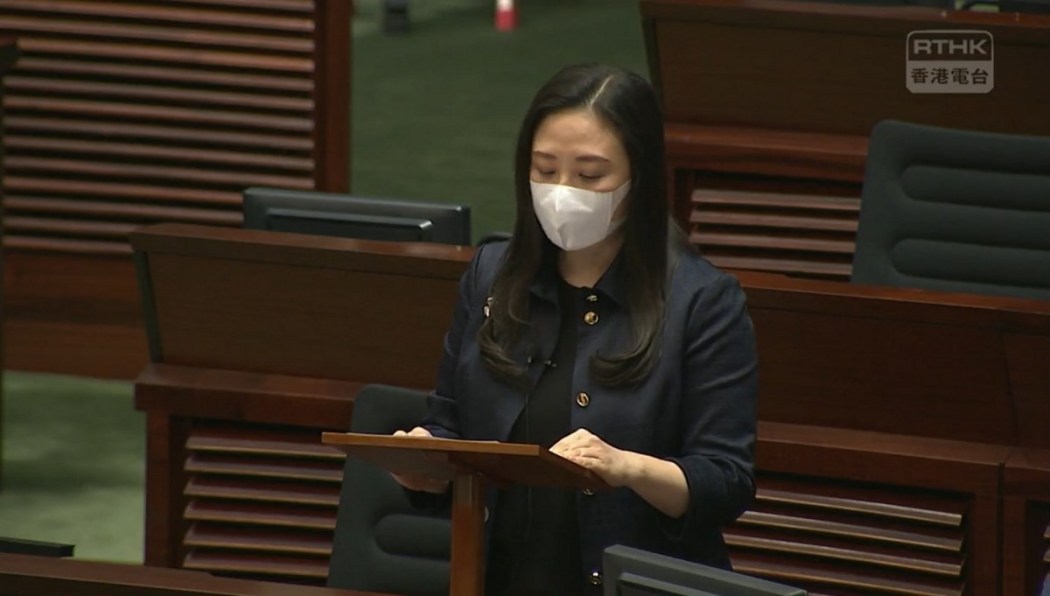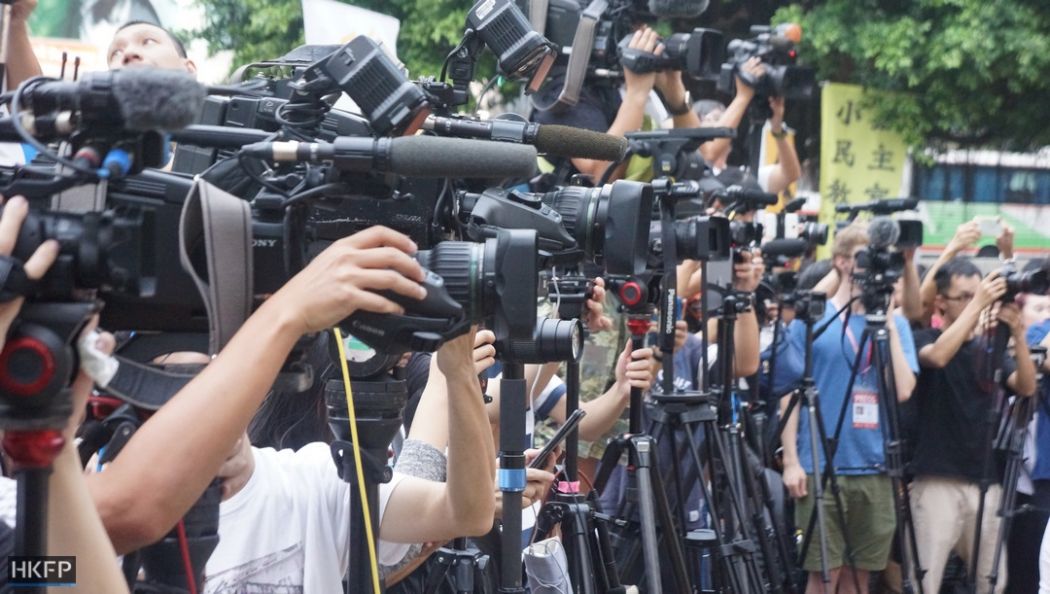Hong Kong’s government is the “biggest victim of fake news,” Chief Executive Carrie Lam told lawmakers on Thursday, as she pledged to submit a bill to tackle “doxxing” within the current legislative term.
The city’s leader made the comment during a question and answer session at the Legislative Council (LegCo).

Lam said the session would allow her to respond to queries about the electoral overhaul which Beijing approved last month with the aim of ensuring that only “patriots” administer Hong Kong.
Elizabeth Quat from the largest pro-Beijing party the DAB told Lam the city had been “harmed by fake news” in the recent past, citing unverified rumours about deaths caused by police operations and at a detention centre during the 2019 anti-extradition bill protests.
The legislator said misinformation also impeded the government’s anti-epidemic work, such as claims that Beijing could harvest DNA information arising from the government’s mass Covid-19 testing programme, as well as criticism of the Chinese-made Sinovac vaccine.
‘Distorted, vilified’
In response to Quat’s question about a timeline for legislating against “fake news,” Lam said misinformation had made all government work “very difficult.”

“The SAR government is the biggest victim of fake news… the things we said were quickly distorted, vilified,” she told LegCo, which has no opposition members following a mass walkout by pan-democrats last November. They acted after four colleagues were ousted from the chamber following a decision by Beijing
The Hong Kong leader recalled she had vowed action against “fake news” in a Q&A session in February, when she said the government would concentrate on handling personal privacy infringements and the dissemination of “fake news” and hate speech in the upcoming legislative year.
Lam said authorities were studying ways to address the issue and looking at measures adopted by overseas governments. “Even the so-called Western democracies have to tackle this, otherwise it is very hard [for them] to govern.”
Lam said her administration may not be able to submit a bill on tackling “fake news” this legislative year, but would give priority to proposing amendments to the Personal Data (Privacy) Ordinance to criminalise doxxing – the release on the internet of personal information on officials – before the council’s current term ends.

The term of the incumbent lawmakers will be extended until mid to late October, Lam said last month, after the government decided to postpone the 2021 LegCo polls for a second time to accommodate Beijing’s electoral changes.
Support HKFP | Policies & Ethics | Error/typo? | Contact Us | Newsletter | Transparency & Annual Report | Apps
Help safeguard press freedom & keep HKFP free for all readers by supporting our team

LATEST FROM HKFP
HKFP has an impartial stance, transparent funding, and balanced coverage guided by an Ethics Code and Corrections Policy.
Support press freedom & help us surpass 1,000 monthly Patrons: 100% independent, governed by an ethics code & not-for-profit.










